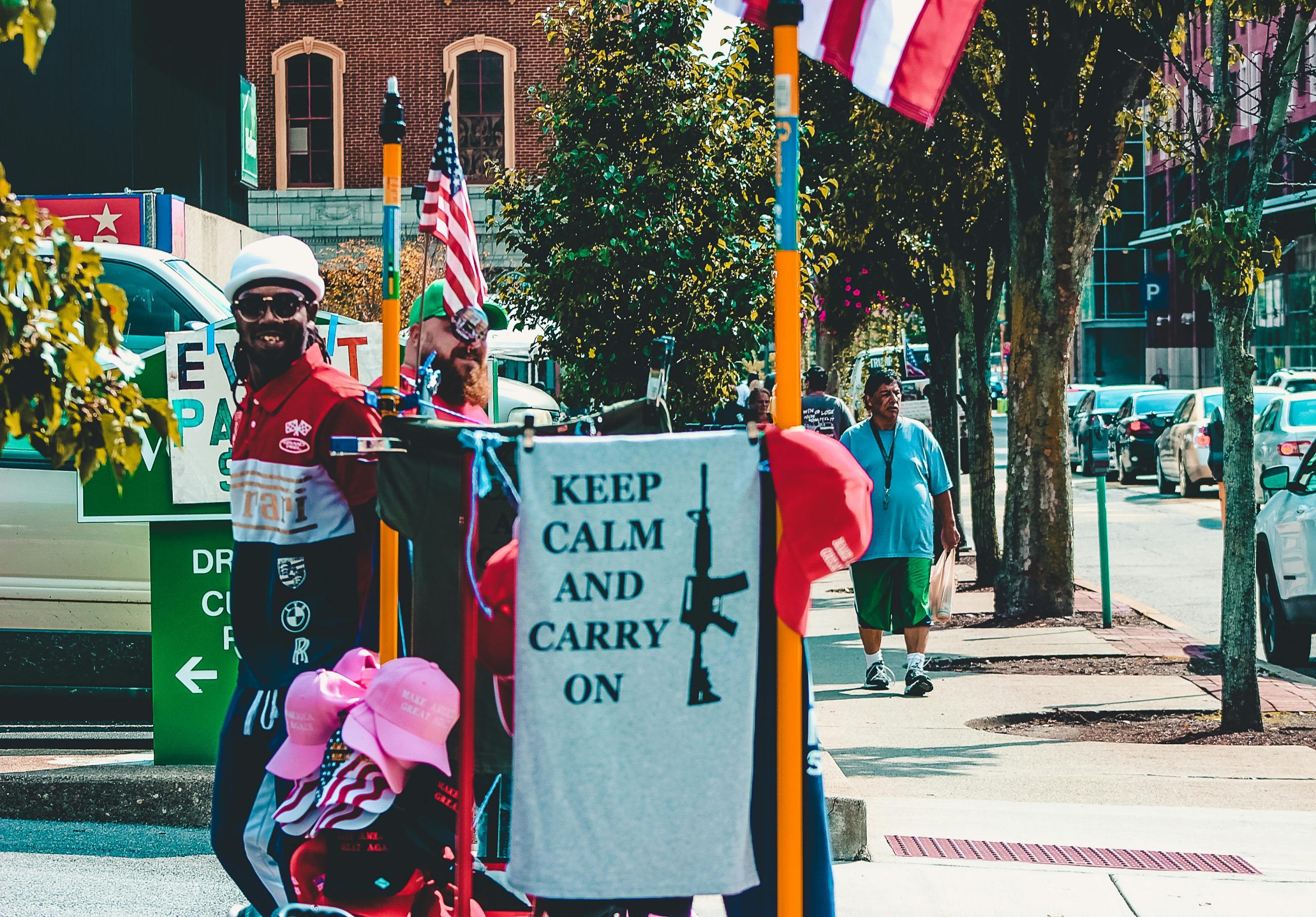At the beginning of June we witnessed a sickening bout of ‘sycophantasia’, with what Jon Bigger described as “four days of union flag bunting, […] media hype and wall to wall news coverage, reminding us that we still suffer the monarchy.” Outside of media-land there was little appetite for cap-doffing and brown-nosing in the midst of a cost-of-living crisis. In Doncaster, the few people on working-class estates who opted for a piss-up — sorry, a ‘street party’ — were thanked by Her Majesty with a celebratory increase in the presence of her esteemed police force. Thankfully, mid-June belongs to the free.
In his 2008 essay Wat Tyler Day: The Anglo Juneteenth (reprinted in Stop Thief! The Commons, Enclosures and Resistance, PM Press, 2014), Peter Linebaugh counters calls to make June 15th a national Magna Carta Day with the suggestion that we also celebrate it as Wat Tyler Day. Linebaugh is not opposed to Magna Carta Day, his book The Magna Carta Manifesto: Liberties and Commons for All (University of California Press, 2008) outlines how Magna Carta could be used to gain back lost liberties and restore the commons (both physically and ideologically), but in Wat Tyler Day he suggests that:
“[June 15] is also the history of another charter, this one proposed by Wat Tyler, a leader of the Peasants’ Revolt until he was assassinated on June 15, 1381 […] The Peasants’ Revolt helps us to remember the commons and its agents, the real commoners, which is why June 15 may be celebrated for Magna Carta but it should be named for Wat Tyler.”
When nationalists paint their cartoon histories for the reassurances of bigots, they do a terrible disservice to the living, breathing, loving hearts of the people who came before us. We are not extras in the stories of the rich and powerful, we are the real builders of this world. Indeed, most flashpoints in history begin with the rich and powerful causing hardship, suffering and death for everyday people.
In the 1340s the black death wiped out around a third of the population of England, but the subsequent labour shortages had given the everyday people a rare upper hand and a better understanding of their intrinsic worth. Unfortunately, the powers that be legislated against their advantage and introduced the 1351 Statute of Labourers, which not only capped wages under pain of imprisonment, but also mandated which jobs were of greater importance and which were not. Those whose jobs were deemed of lesser importance were forced to serve in the harvests as well as do their daily jobs. As with Universal Credit today, the poor were punished for their poverty to ensure that the not-so-poor would stay in their place. But you can only push people so far before they begin to revolt.
War is a rich man’s game, played, at the expense of others, to make the rich even richer. Where there is power, there is war. And where there is war, there is a good excuse for taxation. In the 1380s, England was in the midst of what would become known as the Hundred Years’ War, a series of power struggles between England and France fuelled by the emergence of nationalism. Years of pointless military endeavour was getting costly. In desperation the much-hated Duke of Lancaster, John of Gaunt, introduced capitation, a fixed sum on the head of every adult in England, without regard for their individual income or resources. This kind of ‘head tax’ is also known by the more familiar name of Poll Tax. A peasantry already under immense pressure now found themselves constantly hounded by tax-men and lawyers. One of those tax-men would molest the daughter of a man named Wat Tyler and the rest, as they say, is history.
Wat Tyler was a follower of the preacher John Ball. Associated with John Wycliffe, who translated the bible into the vernacular tongue, and the Lollards, named so because they spoke scripture in the accents of everyday people which the aristocracy found hard to understand (they would mimic them by mumbling things like “la, la, lo, lo, lo, la”), but active a full decade before either, Ball preached a creed of equity and commons more true to the original message of the bible than any latin-loving powermonger would ever admit to. Ball was imprisoned at the beginning of the Peasants’ Revolt, but the Kentish rebels would release him from prison and he would preach his most famous sermon at Blackheath, which included the immortal lines:
“When Adam delved and Eve span, Who was then the gentleman? From the beginning all men by nature were created alike, and our bondage or servitude came in by the unjust oppression of naughty men. For if God would have had any bondmen from the beginning, He would have appointed who should be bond, and who free.”
For daring to speak out against hierarchy, John Ball was hung, drawn and quartered in the presence of King Richard II at St Albans on July 15th, 1381, a month to the day after the betrayal and murder of Wat Tyler.
It is said that on May 30th, 1381, a royal official named John Bampton interfered with Wat Tyler’s daughter as he attempted to collect taxes in Brentwood, Essex (insert your own royal impropriety joke here). This triggered a violent confrontation which spread across the south-east. People from a diverse range of jobs and social backgrounds began to riot, release prisoners from local gaols and burn court records. In unison they demanded the scrapping of the poll tax, the removal of the king’s senior officials, the closure of law courts, and an end to serfdom.
The uprising continued to grow and a couple of weeks later a delegation of Kentish rebels, led by Wat Tyler, marched towards London. At Blackheath — where the newly released John Ball would deliver his famous sermon — they were met by representatives of the royal government. But the politicians and bureaucrats could not persuade the rebels to go home, so the king promptly hid in the Tower of London (to be fair, he was only 14yrs old, Boris Johnson was 55 when he hid in that fridge). On June 13th the rebels entered London and together with many local Londoners, they destroyed the Savoy Palace, emptied gaols, burned tax records and bumped-off a few royal representatives. The next day, finally agreeing to meet with his betters at Mile End, the king conceded to most of the rebels’ demands, including the end of serfdom.
But power and betrayal have always been comfortable bedfellows. Despite the king’s promise that the people of England “should have all that he could fairly grant“, the charters drawn up at Mile End were not to Tyler’s liking. These rebels were no disgruntled mob seeking to lower taxes. Their demands were revolutionary. They asked that no lord had any lordship in the future; that the goods of the Holy Church should be divided amongst the parish (they even gave generous provision for the retirement of the clergy); that the preserves of water, parks and woods be held in common for the sustenance of all; and that there be no more villeins (a feudal tenant) in England, so that all should be free and of one condition. They also asserted that there be no law but the law of Winchester (a reference to the Saxon legal system), which would effectively end capital punishment and ban compulsory military service. Like the Levellers who followed them, their demands were years ahead of their time and England has yet to reach them in their fullness. With no truce met it was agreed that they should meet at Smithfield on the day before a great cattle market. It is recorded that Tyler greets the king thus:
“Brother, be of good comfort and joyful, for you shall have, in the fortnight that is to come, forty thousand more commons than you have at present, and we shall be good companions.”
The aristocracy have never taken kindly to being treated as equals, they didn’t rape, pillage and murder just for some upstart Essex boy to call them ‘brother’. Not only did they take exception with the way Wat Tyler talked to the teenage king, they even found rudeness in the way he drank water in front of him. Honestly, it is any excuse for a fight with some people (some historians suggest that Tyler was deliberately rude to provoke the king into reneging upon his deal so that the unrest would continue to spread and deepen to the extent that royalty itself was overthrown, if this is the case then we should praise Tyler for the consistency of his beliefs, only a world without monarchy or hierarchy could truly deliver the vision of John Ball… although it does leave us with another heartbreaking ‘what if?’ as the story unfolds). Sir John Newton then declared that Tyler was “the greatest thief and robber in all Kent“, which is a bit rich coming from a member of the aristocracy — as Honore de Balzac is often paraphrased as saying (and to which I have yet to hear a convincing counter-argument): “Behind every great fortune is a great crime.” Tyler reacted and a fight broke out between him and Newton, but then the Lord Mayor of London, William Walworth waded in, slashing Tyler’s neck and head with his sword. Tyler fled on horseback, but only managed to ride thirty yards before he fell. The rebels took him to a hospital for the poor, but Walworth tracked him down and had him beheaded, displaying his head on London Bridge. King Dick revoked all of the concessions he had promised and the rebels were rounded up and executed.
Walworth’s wife was named Margeret, which might have inspired Margeret Thatcher to trial and fail with the second Poll Tax in English history in 1990 after rolling it out in Scotland in 1989. In 1649 the English had tried and failed at republicanism too when they beheaded Charles I only to replace him with a tyrant, and then with another bloody king. Bloody indeed, for it was Charles II who granted the East India Company the rights to the autonomous government of its territorial acquisitions, to mint money, to command fortresses and troops, to form alliances, to make war and peace. In short, he created an early global corporation which acted with impunity as it gave a foothold to the British Empire, helped enslave 12.5 million Africans, killed countless millions more, was involved with numerous wars including the Anglo-Indian Wars which led to British Colonial Rule in India and the Opium Wars which further impoverished the Indian subcontinent, conducted extrajudicial executions, created dozens of trade monopolies through its lobbying of the English parliament and dominated the arms trade by controlling the trade in saltpetre, a primary ingredient in gunpowder. This depressingly familiar model of exploitation and subjugation has been finely developed throughout the history of capitalism so that, with modern neoliberalism, we now live under a seemingly inescapable system of inverted totalitarianism which dominates every aspect of human life. I say ‘seemingly’ because the same was once thought with regard to the divine right of kings… but not to Wat!
Colonialism, capitalism and neoliberalism may never have come into existence if the likes of Wat Tyler, John Ball, Jack Straw and John Wrawe had been granted the charter they fought for in 1381. In these post-colonial times, the children of Albion would do well to look back at these pre-colonial rebels to help build a brighter future for this disenchanted isle.
Fuck the royals.
Fuck the sycophantic amnesia of the media.
Happy Wat Tyler Day.
Warren Draper








